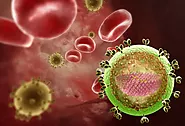-
About
- About Listly
- Community & Support
- Howto
- Chrome Extension
- Bookmarklet
- WordPress Plugin
- Listly Premium
- Privacy
- Terms
- DMCA Copyright
- © 2010-2025 Boomy Labs

Listly by Umbrella Health Care Systems
Acquired immunodeficiency syndrome (AIDS) is a chronic, potentially life-threatening condition caused by the human immunodeficiency virus (HIV). By damaging your immune system, HIV interferes with your body's ability to fight infection and disease.
HIV is a sexually transmitted infection (STI). It can also be spread by contact with infected blood and from illicit injection drug use or sharing needles. It can also be spread from mother to child during pregnancy, childbirth or breastfeeding. Without medication, it may take years before HIV weakens your immune system to the point that you have AIDS.
There's no cure for HIV/AIDS, but medications can control the infection and prevent progression of the disease. Antiviral treatments for HIV have reduced AIDS deaths around the world, and international organizations are working to increase the availability of prevention measures and treatment in resource-poor countries.
https://www.umbrellamd.com/e-visit

Myth.Human immunodeficiency virus (HIV) is a virus that destroys the body's CD4 immune cells, which help fight disease. With the right medications, you can have HIV for years or decades without HIV progressing to AIDS. AIDS (acquired immunodeficiency syndrome) is diagnosed when you have HIV as well as certain opportunistic infections or your CD4 cell count drops below 200.
https://www.umbrellamd.com/e-visit

Fact. You can't catch or spread HIV from hugging someone, using the same towel, or sharing the same glass. It's very rare to get HIV from a blood transfusion -- the U.S. blood supply is carefully tested. However, you can get the disease from having unprotected sex, sharing needles, or getting a tattoo from unsterilized equipment.
https://www.umbrellamd.com/e-visit

Myth. Because of the HIV drugs that are now available, the truth is that many people can live for decades with HIV and have a normal or near-normal life span. You can help prevent HIV from progressing to AIDS by seeing your doctor regularly, taking your medicines, and following your doctor's guidance.
https://www.umbrellamd.com/e-visit

Myth. Some people don't show signs of HIV for years after being infected. However, many can have some symptoms within 10 days to a few weeks after infection. These first symptoms are similar to the flu or mononucleosis and may include fever, swollen lymph nodes, sore throat, rash, and muscle aches. They usually disappear after a few weeks and you may not have symptoms again for several years. The only way to tell you have HIV is to get tested.
https://www.umbrellamd.com/e-visit

Myth. There is no cure for HIV at the present time, but treatment can control virus levels and help maintain your immune system. Some drugs interfere with proteins HIV needs to copy itself; others block the virus from entering or inserting its genetic material into your immune cells. All HIV-infected people should start treatment. These medicines are called antiretroviral therapy. Your doctor can say what drug combination is best for you.
https://www.umbrellamd.com/e-visit

Fact. About 38,700 people in the U.S. are diagnosed with HIV each year, and more than 15,000 people who have HIV die each year. Anyone can get HIV -- men, women, children, and people who are gay or straight. Men who have sex with men make up about 25,700 new diagnosed HIV cases each year. Women account for about 6,100 new diagnoses. African-Americans continue to have the most severe burden of HIV, compared with other races and ethnicities.
https://www.umbrellamd.com/e-visit

Myth. Just because you and your partner both have HIV, it doesn't mean you should forget about protection when having sex. Using a condom or other latex barrier can help protect you from other sexually transmitted diseases as well as other strains of HIV, which may be resistant to anti-HIV medication. Even if you are being treated and feel well, you might still be able to infect others.
https://www.umbrellamd.com/e-visit

Fact. Infected mothers can pass HIV to their babies during pregnancy or delivery. But you can lower the risk by working with your doctor and getting the right care and medication. Pregnant women with HIV can take medications to treat their infection and to help protect their babies against the virus.
https://www.umbrellamd.com/e-visit

Myth. People with HIV can get infections like pneumonia, tuberculosis, candidiasis, cytomegalovirus, and toxoplasmosis. The best way to cut the risk is to take HIV medications. People with advanced HIV infection (AIDS) can prevent some of these infections with specific drugs in addition to antiretroviral therapy. You can lessen exposure to some germs by avoiding undercooked meat, litter boxes, and contaminated water.
https://www.umbrellamd.com/e-visit

Myth. There are government programs, nonprofit groups, and some pharmaceutical companies that may help cover the cost of drugs that treat HIV and AIDS. But be aware: These drug "cocktails" can cost $10,000 a year or more. Talk to your local HIV and AIDS service organization to learn about financial help.
https://www.umbrellamd.com/e-visit

Umbrella Health Care Systems provide complete solution for health related problems.
https://www.umbrellamd.com/